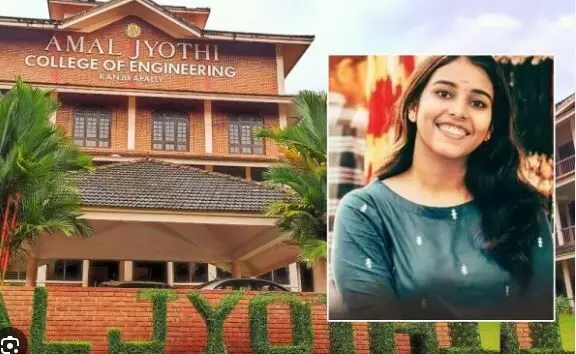
Redressal cells should not get clogged in 'torture rooms'
text_fieldsKerala government has ordered the formation of a student grievance redressal cell within a month in all affiliated colleges, including self-financing institutions, and university departments. Along with this, the government has also decided to make a Students' Bill of Rights a part of the University Act. Higher Education Minister R. Bindu informed this at a press conference the other day. The urgent intervention of the government is in the context of the suicide of a student named Shraddha Satish at Kanjirapally Amal Jyothi Engineering College. Currently, many institutions, including Amaljyothi College, have such redressal cells, but the fact is that none of them is effectively functional. None of them operates under comprehensive and systematic mechanisms. Therefore, there is a situation where students' academic and non-academic complaints cannot be accurately presented. In this case, a fresh intervention on the part of the government within the purview of the University Act is welcome at any rate. But it is unfortunate that a student's life had to be sacrificed for that!
Shraddha, a native of Thripunithura Thiruvankulam, attempted suicide on June 2 in the college hostel room. Initially, the authorities informed the hospital that the student had fallen down. However, Shraddha's parents and all classmates stated that if the incident had been accurately reported to the doctors, she might have received appropriate treatment and possibly survived. Furthermore, both the teachers and the head of the department testified that Shraddha was subjected to insults by the teachers, and they even made statements suggesting that she would take her own life. Hence, this cannot be considered a mere suicide; it is akin to a 'systematic murder,' reminiscent of the case of Fathma Latheef, a Keralite student who tragically lost her life at Madras IIT. This is the underlying cause behind the ongoing student protest on the campus, demanding action against those responsible for Shraddha's death. Recently, numerous incidents highlighting the severe erosion of democracy in various colleges in Kerala have been reported through the media and social platforms. It is only in response to these events that the Higher Education Department has decided to intervene in the matter.
In response to the incident, the government took two actions. Firstly, it ordered a detailed investigation to seek an explanation from the authorities. Secondly, it established a Grievance Redressal Cell to prevent similar incidents in the future. The Chairperson of the cell will be the Principal for colleges and the Head of the Department of Studies for universities. The structure of the cell includes representation from students, parents, teachers, and university representatives. In case of objections to decisions made by the college-level committee, there is a higher committee available to consider appeals. In that sense, the new initiative is apparently a comprehensive and systematic approach. However, the government has a responsibility to ensure transparency in the operations of these cells. Numerous reports have already surfaced about the existence of various "torture rooms" within higher education institutions in Kerala. These rooms often serve as centres of power for political movements and college authorities on campuses. It is important to note that the proposed Grievance Redressal Cells will also be headed by these centres of authority. In the absence of government’s vigilance, there is a risk that these cells could evolve into "systematic torture rooms”. Therefore, the government cannot assume that its responsibility ends with the enactment of the law or the formation of the Grievance Redressal Cells. A thorough investigation, including the incident at Amal Jyothi College, must be conducted, and the culprits must be brought to justice.
There is no doubt that Kerala has achieved remarkable progress in the fields of education and healthcare. However, it is undeniable that certain issues within these sectors have caused significant setbacks too. One such issue is the lack of foresight in planning and legislation. Unfortunately, it takes the state system occurrence of emergencies or grave incidents to take action, regardless of the potential dangers involved. The enactment of the Health Care Act serves as an example of this pattern. The demand for such legislation by healthcare workers had long been persistent, as health-care personnel frequently faced attacks while performing their duties. However, the authorities remained unresponsive until a doctor's tragic death led to widespread protests. Subsequently, an ordinance was issued to address the issue. Similarly, the case of the proposed Student Grievance Redressal Cell follows a similar trajectory. Kerala has long been engaged in debating the issue of undemocratic practices in the state’s campuses. In the meantime, those like Jishnu Pranoy became victims to systematic murders. On none of those occasions did the authorities become prepared to seriously intervene in the matter. Sustained radical changes, including in higher education sector, will become a reality only if this this attitude also changes.



























